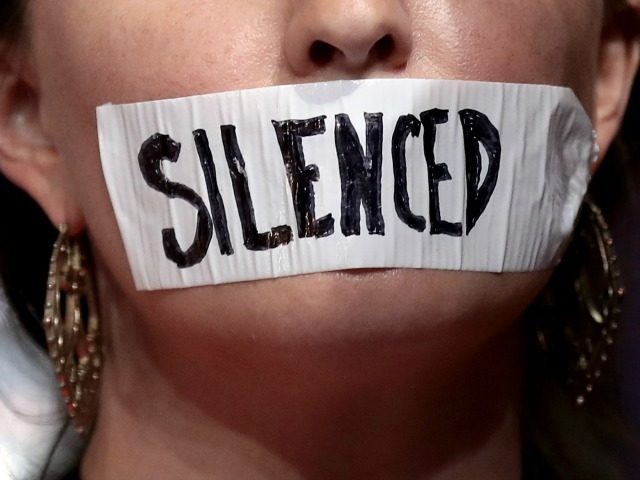Duke Divinity School has forced out a professor who refused to kowtow to the liberal academic zeitgeist in a latest example of the demise of free intellectual inquiry and expression on America’s college campuses.
The crime of Prof. Paul Griffiths, a professor at Duke Divinity School, was openly speaking his mind regarding a racial equity training program offered on campus. When one professor praised the program in a faculty-wide email, Griffiths responded in kind by advising his fellow professors to avoid the workshop as an “anti-intellectual” exercise in political correctness.
The row began in February, when Prof. Anathea Portier-Young, a scholar with expertise in “constructions of identity, gender, and ethnicity, and traditions of violence and nonviolence,” distributed an email to the Divinity School faculty urging her colleagues to participate in the “Racial Equity Institute Phase I Training.”
Ms. Portier-Young assured her coworkers that the weekend program would be “transformative, powerful, and life-changing.”
Quoting from the Racial Equity Institute’s guiding ideas, Portier-Young said that racism is “a fierce, ever-present, challenging force, one which has structured the thinking, behavior, and actions of individuals and institutions since the beginning of U.S. history.”
“To understand racism and effectively begin dismantling it requires an equally fierce, consistent, and committed effort,” she said.
Mistaking the mass email for an exercise in open dialogue, Prof. Griffiths replied with a faculty-wide email of his own, expressing his opposition to the workshop.
Since Ms. Portier-Young had “made her ideological commitments clear,” Griffiths said, he intended to do the same, “in the interests of free exchange.”
“I exhort you not to attend this training,” wrote Griffiths, who teaches Catholic Theology at Duke. “There’ll be bromides, clichés, and amen-corner rah-rahs in plenty,” he said, which would reflect “illiberal roots and totalitarian tendencies” and be “definitively anti-intellectual.”
Griffiths also stated that “(re)trainings of intellectuals by bureaucrats and apparatchiks have a long and ignoble history; I hope you’ll keep that history in mind as you think about this instance.”
Rather than submit to illiberal indoctrination, Griffiths suggested to his colleagues, they should rather reaffirm their own mission to free inquiry into the truth.
“Each of us should be tense with the effort of it, thrumming like a tautly triple-woven steel thread with the work of it, consumed by the fire of it, ever eager for more of it,” he said.
The Dean of the Divinity School, Elaine Heath, jumped into the exchange, unapologetically taking the part of Portier-Young.
In her own email to the faculty, Heath said that she was “looking forward to participating in the REI training” and that she was “proud that we are hosting it at Duke Divinity School.” She went on to say that the sessions would improve the school’s “intellectual strength, spiritual vitality, and moral authority.”
Not content with plugging the re-education workshop, Dean Heath proceeded to publicly excoriate Prof. Griffiths, accusing him of being a racist and a bigot because he disagreed with the program.
“It is inappropriate and unprofessional to use mass emails to make disparaging statements—including arguments ad hominem—in order to humiliate or undermine individual colleagues or groups of colleagues with whom we disagree. The use of mass emails to express racism, sexism, and other forms of bigotry is offensive and unacceptable, especially in a Christian institution,” she said.
Later, another colleague named Thomas Pfau joined the fray, defending Prof. Griffiths.
“Having reviewed Paul Griffiths’ note several times, I find nothing in it that could even remotely be said to ‘express racism, sexism, and other forms of bigotry,’” Pfau observed. “To suggest anything of the sort strikes me as either gravely imperceptive or as intellectually dishonest.”
Rather, he said, if a faculty member raises serious doubts about the efficacy and methods of an initiative aimed at combating racial and other kinds of bias “then this view ought as a matter of course be respected as a legitimate exercise of judgment and expression.”
Undaunted, the Dean initiated a disciplinary procedure against Mr. Griffiths for “unprofessional conduct,” banning him from faculty meetings and voting in faculty affairs, while also promising to ban him from access to research or travel funds.
Simultaneously, Ms. Portier-Young filed a complaint for “harassment” with the University’s Office for Institutional Equity.
“These disciplinary proceedings are designed not to engage and rebut the views I hold and have expressed about the matters mentioned, but rather to discipline me for having expressed them,” Griffiths responded in another email.
Last week Prof. Griffiths announced his resignation from Duke Divinity School “in response to disciplinary actions initiated by my dean and colleagues.”
Those actions were the reaction to Griffith’s defense “of particular freedoms of expression and thought, and against legal and disciplinary constraints of those freedoms,” he said in an open letter published in Commonweal Magazine.
The “diversity” touted by liberal academia never seems to extend to those who would question the taboos of the establishment itself.
Follow Thomas D. Williams on Twitter Follow @tdwilliamsrome

COMMENTS
Please let us know if you're having issues with commenting.